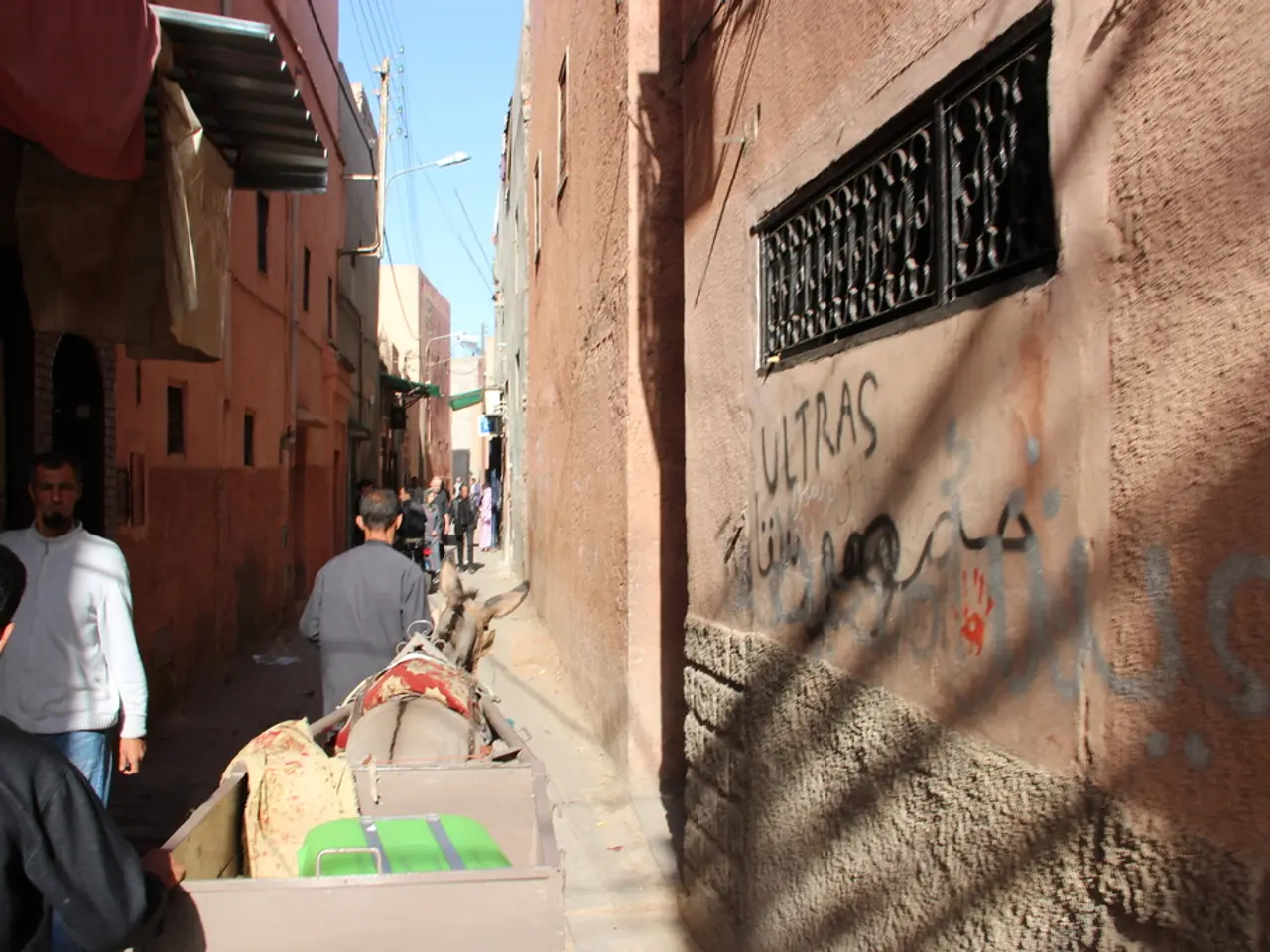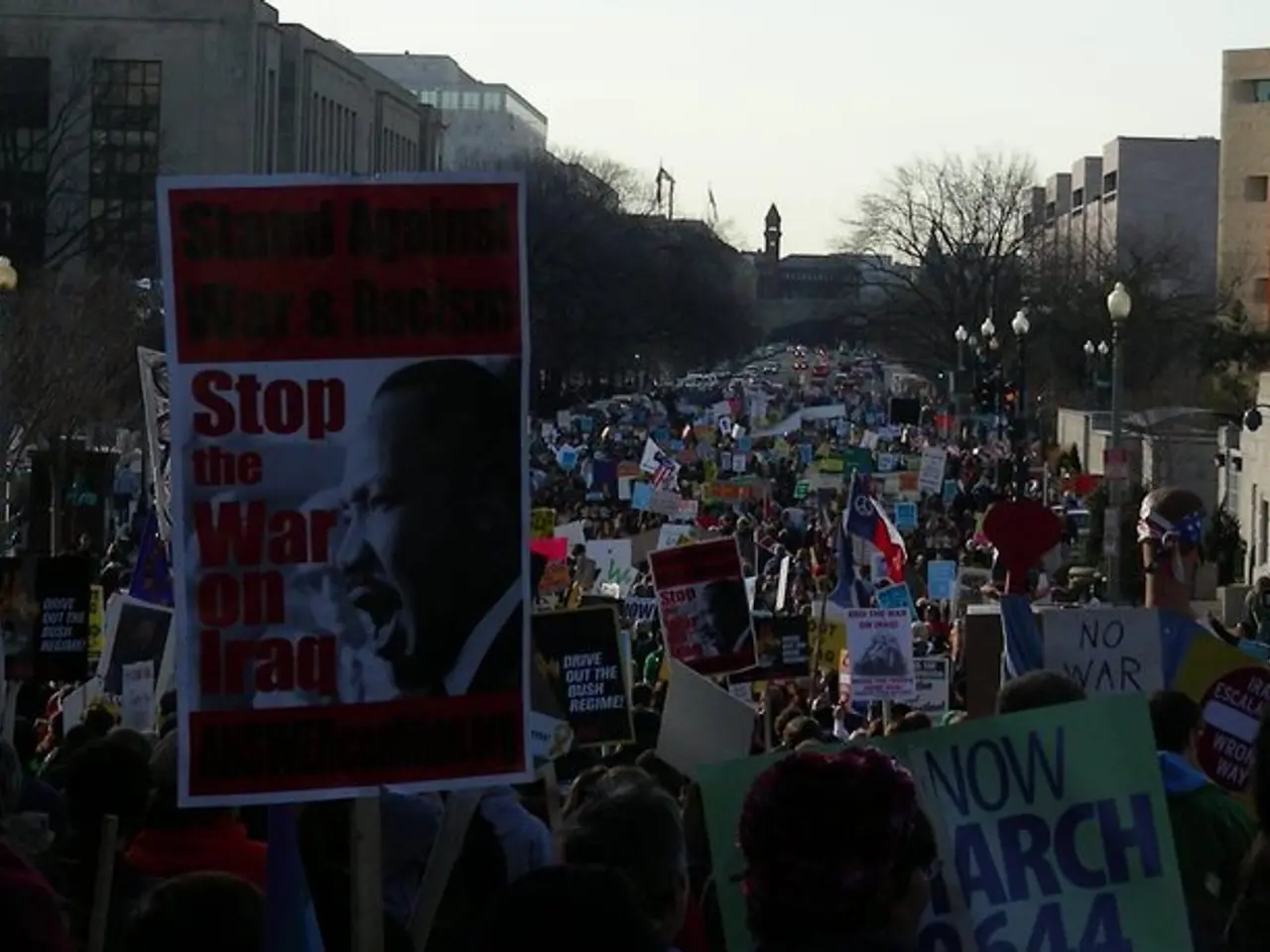Britain's Labour Leader Starmer Issues Warning: Possible Recognition of Palestinian State by Israel - Israel faces potential recognition of Palestinian state by Stirmer
UK, France, and Canada Consider Recognizing Palestine as a State Amid Gaza Crisis
The upcoming UN General Assembly in New York is set to witness significant developments, with the UK, France, and Canada announcing their intentions to recognize Palestine as a state. This move comes amidst a rapidly deteriorating humanitarian situation in the blockaded coastal region of Gaza.
UK's Conditional Recognition
Prime Minister Keir Starmer has announced that the UK will recognize Palestinian statehood at the United Nations General Assembly in September 2025, contingent upon Israel taking substantive steps to end the Gaza crisis and committing to a long-term two-state peace process. This decision links the UK's recognition to progress towards peace and Israeli actions.
France's Support for Palestine
French President Emmanuel Macron was the first among these leaders to announce recognition of Palestinian statehood, signaling France’s support for Palestine’s status as a sovereign state. The French President has emphasized the need for humanitarian aid and peace.
Canada's Contingent Recognition
Canadian Prime Minister Mark Carney has stated that Canada intends to recognize the State of Palestine at the UN General Assembly in September 2025, contingent upon commitments by the Palestinian Authority to governance reforms, holding elections in 2026 excluding Hamas, and demilitarization. Canada also supports Israel’s right to security and peace and emphasizes humanitarian aid for Gaza and advancing a two-state solution.
USA's Traditional Stance
The United States maintains its traditional stance, supporting Israel’s security and insisting on a negotiated two-state solution but not recognizing Palestinian statehood unilaterally at this time. This is consistent with historic US policy and the critical context given in the statements from Canada and European nations recognizing Palestine implies a contrast with US policy.
Ongoing Conflict in Gaza
The leaders who have announced recognition are also simultaneously condemning Hamas’s terrorism, calling for hostage releases, and emphasizing the need for humanitarian aid delivery to Palestinians, particularly in Gaza, alongside advocating for peace and security for Israel.
| Country | Position on Palestine Recognition | Relation to Gaza Conflict and Peace Process | |---------------|------------------------------------------------------------|------------------------------------------------------------| | UK | Will recognize Palestine at UNGA 2025 unless Israel takes tangible peace steps | Calls for Gaza crisis resolution; links recognition to peace progress | | France | Supports recognizing Palestine as a state | Emphasizes humanitarian aid and peace | | Canada | Intends to recognize Palestine contingent on reforms and demilitarization | Supports humanitarian aid; demands Hamas disarm and hostage release; supports Israel’s security | | USA | Has not recognized Palestine unilaterally | Supports Israel’s security; seeks negotiated two-state solution, not unilateral recognition (implied) |
This reflects a shift among some Western nations towards formal recognition of Palestine amid the Gaza conflict, while still supporting Israel’s right to security and advocating for humanitarian relief and peace negotiations.
The British government will assess the implementation of these steps by the parties before making a final decision on recognizing a state of Palestine at the UN General Assembly. Nearly 150 UN member states recognize Palestine as a state, but important western countries like the USA and Germany are not among them.
In other developments, Palestinian President Mahmoud Abbas welcomed the planned recognition and described it as a "courageous stance." In a phone call with Starmer, Abbas thanked him and called on countries that have not yet recognized Palestine as a state to do so. The current situation in the Gaza Strip is causing suffering, with children starving and the world being appalled by Israel's drip-by-drip aid, according to the British chief diplomat.
Prime Minister Keir Starmer has set demands for Hamas, including the release of hostages, a ceasefire, acceptance of no role in governing the Gaza Strip, and disarmament. Israel is not recognized by countries such as Saudi Arabia, Iraq, and Syria. French President Emmanuel Macron announced last week that France will recognize Palestine as a state.
The Parliament resolution on the Commission communication on the future of the European Union, entitled "A European strategy for the future of the European Union," includes discussions on the political implications of the UK, France, and Canada's recognition of Palestine as a state amidst the ongoing war-and-conflicts in Gaza. This resolution emphasizes the need for a political solution to the conflict, along with general-news updates on the humanitarian crisis in Gaza and the importance of a two-state peace process.
As the UN General Assembly approaches, these Western nations are taking steps towards recognizing Palestine as a state, with each country emphasizing specific requirements and focus areas such as progress towards peace, reforms, demilitarization, and humanitarian aid, all with the aim of resolving the Gaza crisis and promoting lasting peace in the region.






